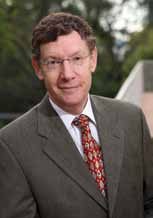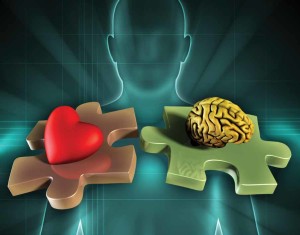MAN – The Social Animal
 by Allen Weiss, MD, MBA, FACP, FACR
by Allen Weiss, MD, MBA, FACP, FACR
President and CEO, NCH Healthcare System
The way we live, why we do what we do, and how success happens—these are all topics explored at length in the book The Social Animal by David Brooks.
Hidden qualities such as emotional intelligence that have been hard to measure lead to real life happiness, success, and fulfillment, says the author.
Having a normal or slightly above normal intelligence, a reasonable appearance, and some athletic ability may be minimal prerequisites or modest facilitators for success. But being super smart, unusually attractive, excessively wealthy or a gifted athlete really doesn’t guarantee contentment. Surprisingly and paradoxically, just the opposite seems to be the case, as we all know of examples of dysfunctional individuals and families with these “coveted” assets.
Good character matters, as does having energy. Both lead toward persistence. If you do the right thing often enough, you get the right result. Energetic people have enough fuel to overcome the inevitable setbacks. Those with the confidence to endure, acknowledge mistakes and setbacks, recognize weakness, atone for sins, and control their worst impulses will ultimately flourish.
More important than IQ, argues this author, are emotional intelligence, street smarts, or whatever the current buzzword is for the ability to read a landscape, understand the motivations of others, or figure out the underlying reasoning for the behavior of folks we deal with in our everyday lives.
 The unconscious realm of emotions, intuitions, biases, longings, genetic predispositions, character traits, and social norms is where character and personality are formed. These underlying qualities in all humans determine emotional intelligence and how we react to our environment. To a great extent, our life success depends on this unconscious realm.
The unconscious realm of emotions, intuitions, biases, longings, genetic predispositions, character traits, and social norms is where character and personality are formed. These underlying qualities in all humans determine emotional intelligence and how we react to our environment. To a great extent, our life success depends on this unconscious realm.
The Social Animal explores this below-the-surface layer of our minds and behaviors. A whole host of researchers—including neuroscientists, economists, anthropologists, psychologists, sociologists, and geneticists—have concluded that various areas of our brains which were previously thought to be vestigial or not directly related to our behavior actually are activated and engaged
even when we are seemingly at rest.
“The unconscious parts of the mind are most of the mind— where most of the decisions and many of the most impressive acts of thinking take place. These submerged processes are the seedbeds of accomplishment,” according to Brooks.
In another erudite book on the subject titled Strangers to Ourselves, Timothy Wilson writes the human mind can take in 11 million pieces of information at any given time. At the most we are only aware of 40 of these. These submerged mental processes, those below our conscious or organized thinking, shape our judgements, form our character, and provide us with the ability to thrive in our complex environment.
The subconscious or unconscious mind is highly emotional and provides us with those “gut” feelings, passions, and hungers for the invisible bonds among people. The conscious mind highlights the power of the intellect for cognitive thinking and outward appearances, whereas the unconscious mind focuses on harmony and connection, and is immersed in the surrounding environment.
When we scan a beautiful open landscape, we experience an inner feeling of comfort. The opposite feeling of danger, when we face a deep dark forest, stems from millenniums of experience built into our subconscious. The almost innate aversion to spiders and snakes, which in many ways can be protective, is also mostly unlearned.
The idea of a “spiritual GPS system” is our subconscious locating our position and helping map our course. Unfortunately we generally don’t optimize this mapping as we are so attuned to being rational and trying to metric everything. For example, consider the typical hiring policies of many corporations which focus on objective competencies. Once these measures are at an acceptable level, personality becomes much more important for a good fit and subsequent success. Personalities are much more difficult to measure or quantitate but so important in creating high functioning teams. The aggregation of personalities creates the culture of an organization. And as has been stated by many business gurus, “culture trumps strategy all the time.”
Character is to a great extent also controlled by the subconscious. How we react to various situations is probably best explained by processes which are inculcated into our brains even before we are born. Yes, these subconscious processes can be modified by either training or by conscientious education and purposeful behavior. However in the long run, the energy needed to constantly try to modify ingrained behavior is monumental. Most folks will not have the energy, knowledge, or ability to change an underlying subconscious motivation.
Human nature is so complex and so hard to change. Most likely the subconscious is the controlling agent. Until and unless we recognize the subconscious as having such a pivotal role in behavior, we will have continuing frustration with change management.
Consider how much legislation and how many edicts, topdown commands, and all sorts of other warnings have at best only temporary success. Unless new habits are formed by changing behavior at a subconscious level, a person’s basic subconscious will control all activities and unknowingly torpedo any efforts to change.
Fortunately, when we look deeper into the subconscious— be it our own minds or those around us—we are better able to understand, explain, change, and move towards successful behavior.
When employed for the good of any organization, the understanding of our own and other’s emotions will assist in the development of a better environment.
Too often we can be too rational and ignore the controlling and very deep colors of the subconscious.

Leave a Reply
Want to join the discussion?Feel free to contribute!